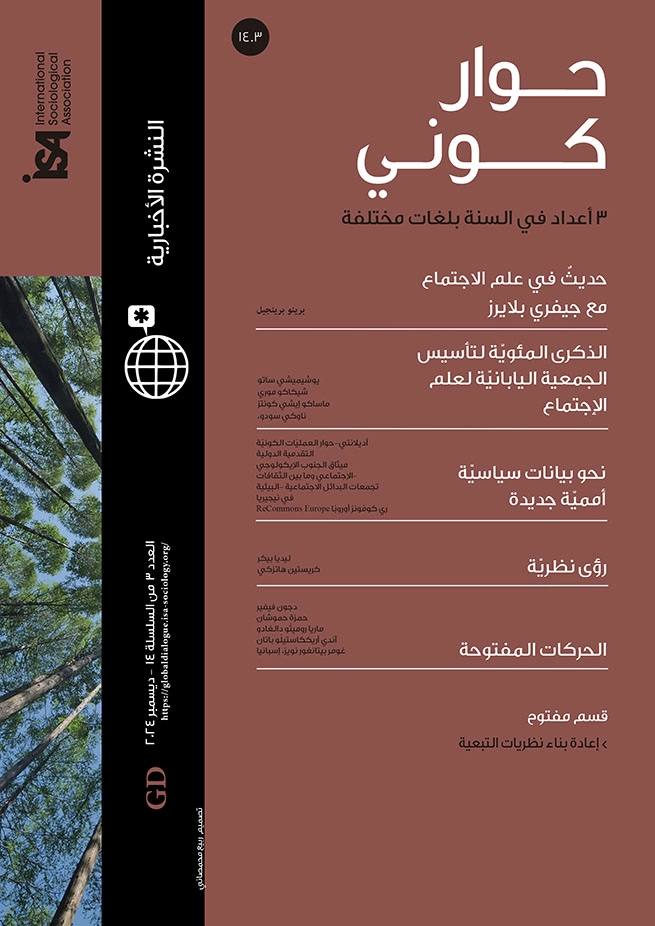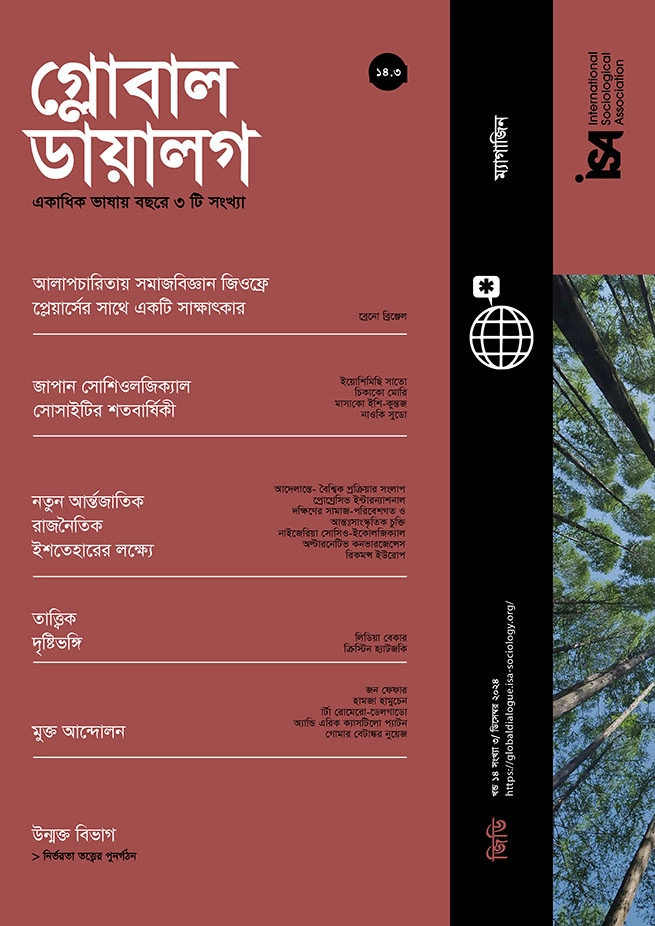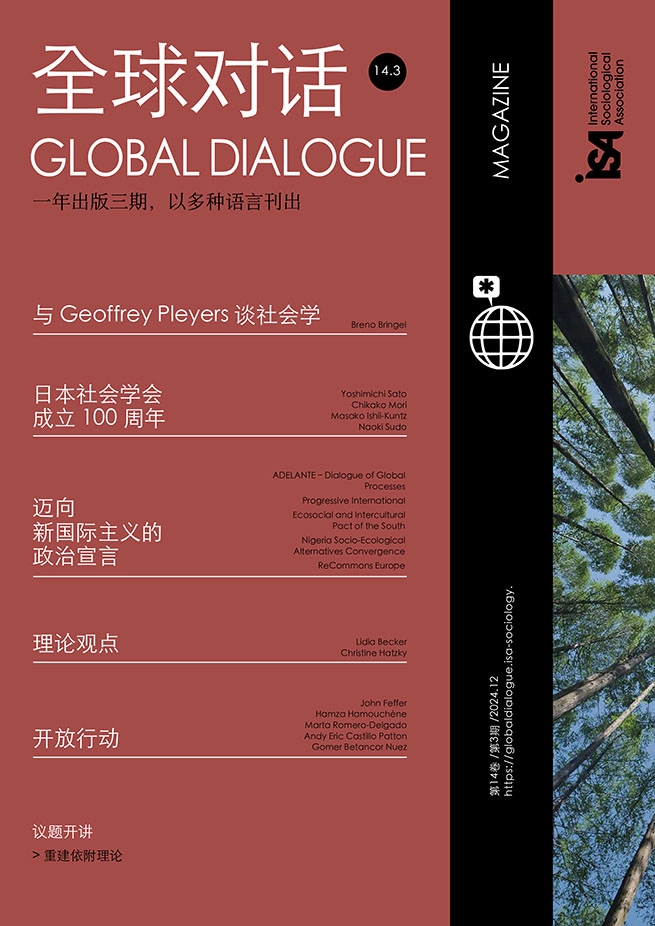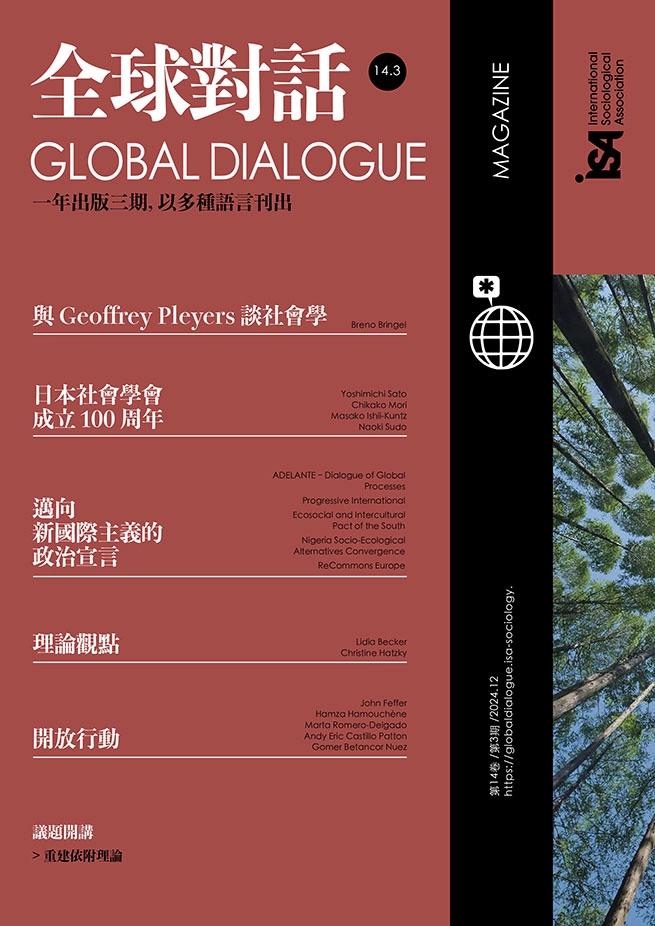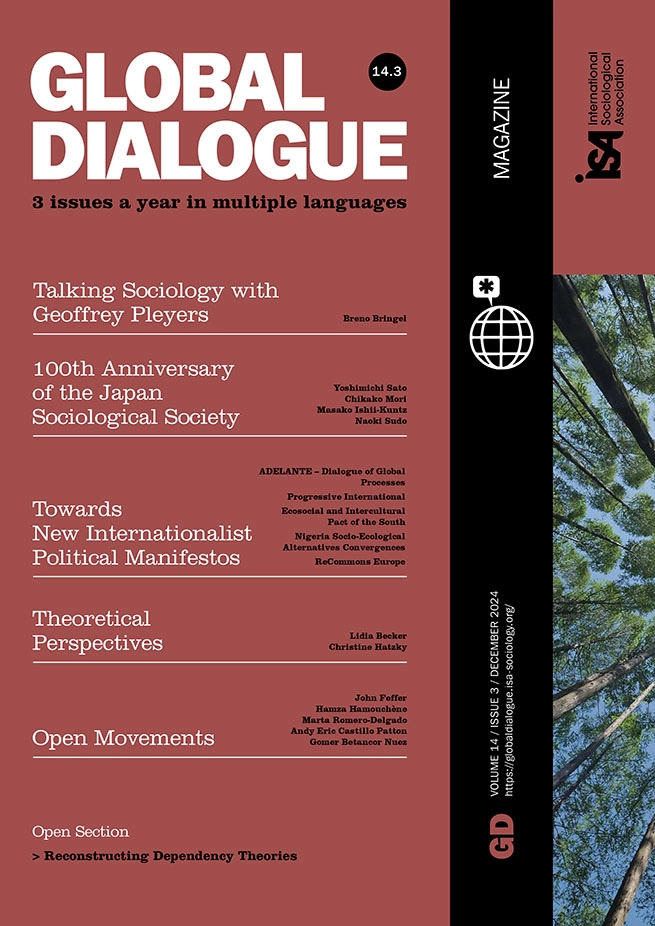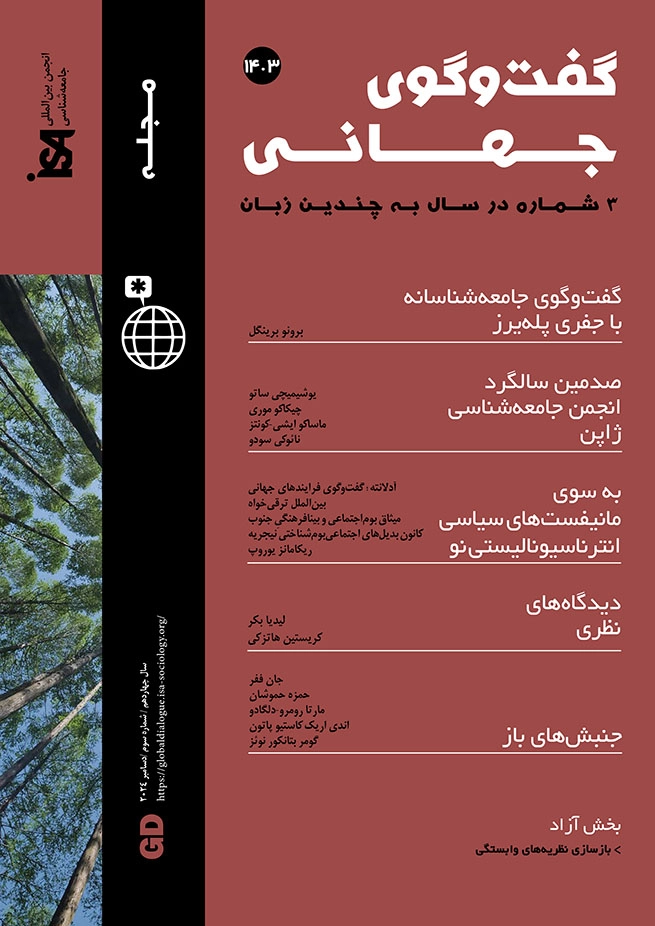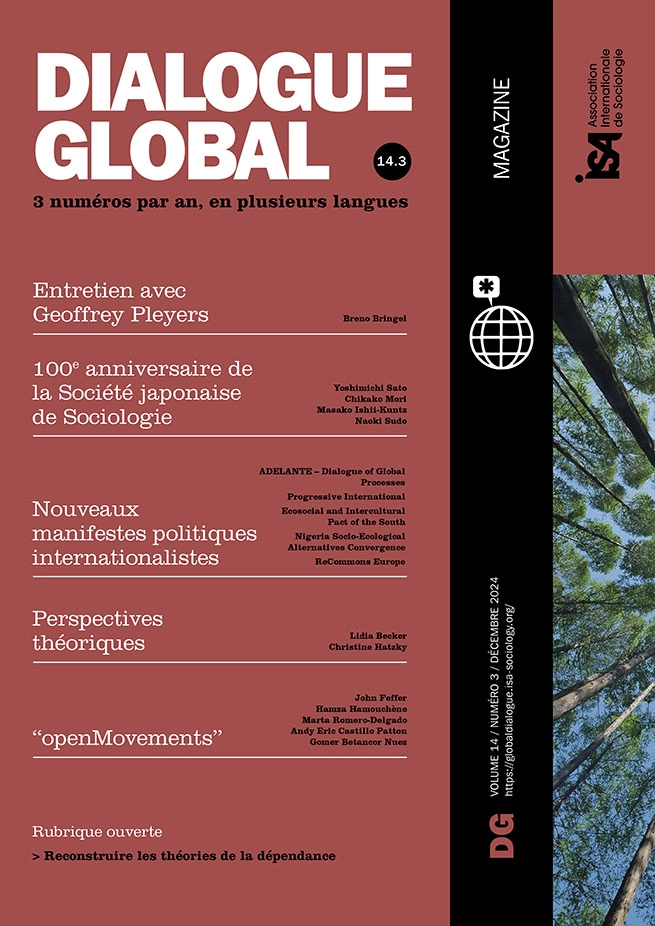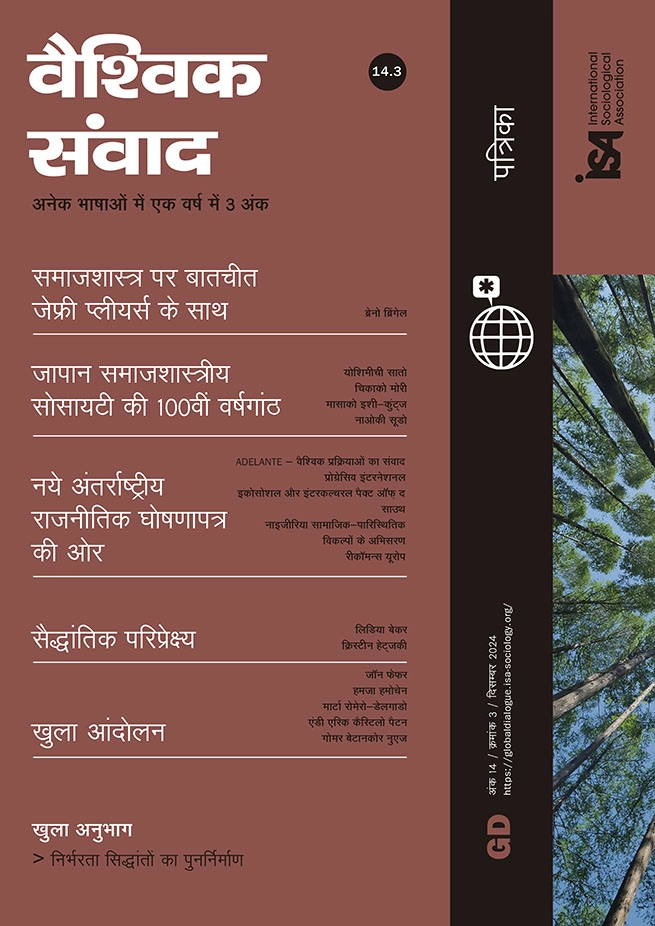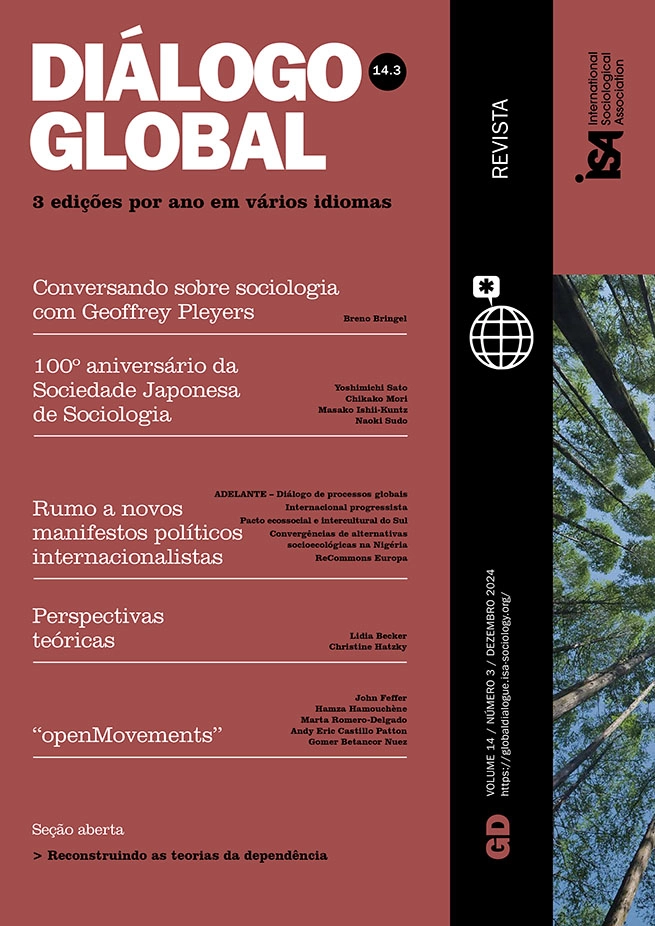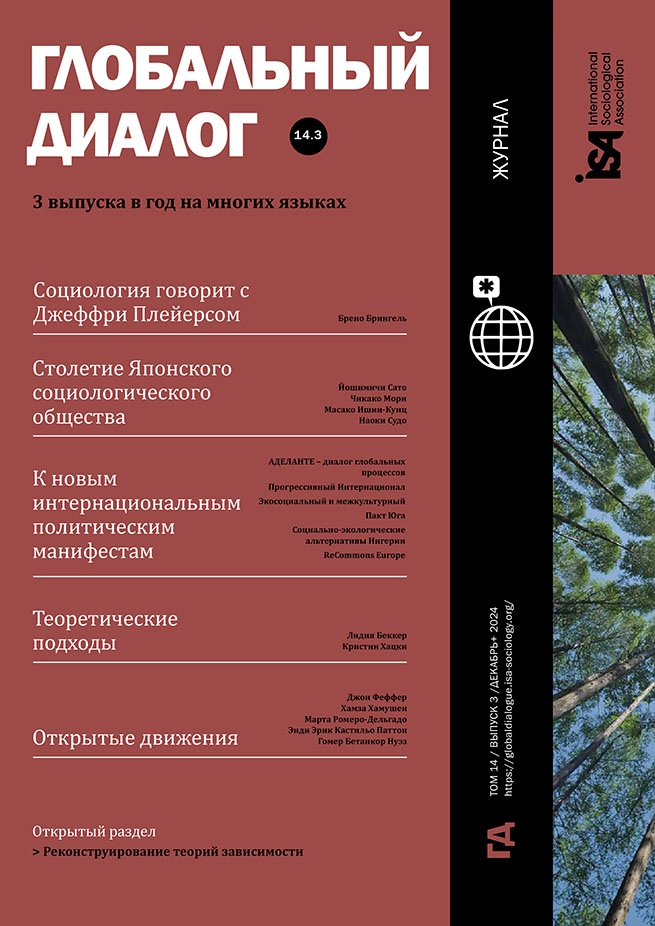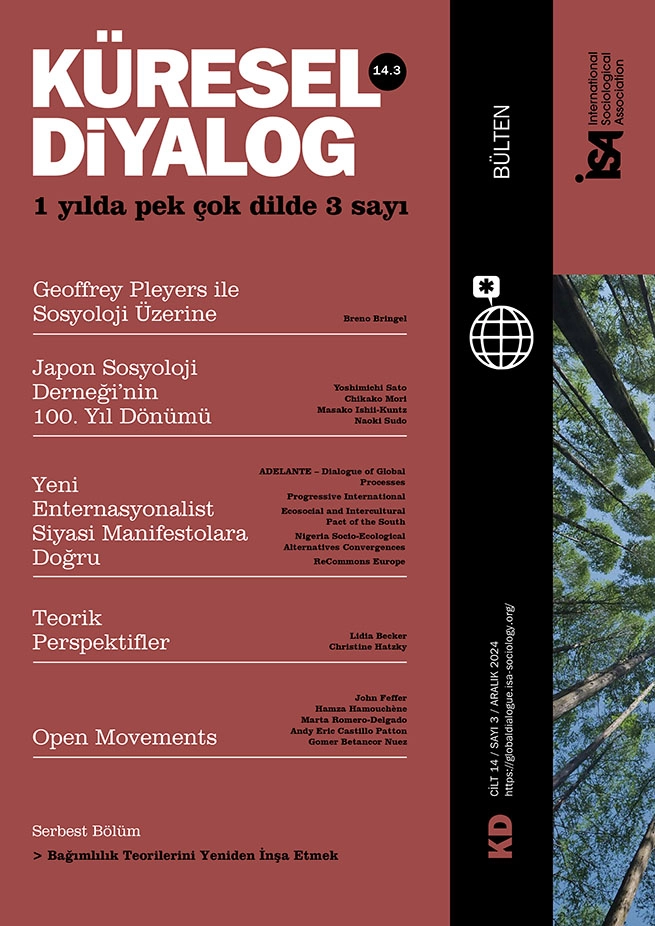Reconstructing Dependency Theories

November 21, 2024
Recognizing the relevance and importance of dependency theories in the present context implies continuing research that deals with the sociology of intellectuals, the history and circulation of ideas, and the revision of modernization theories in peripheral and semi-peripheral regions. Moreover, this must form part of a broad understanding of modernity and global social processes. But it is important not to generalize the conditions of emergence of such theories produced outside the European and North American center as if they were intellectual productions common to all societies in the Global South. Such a generalization would only diminish the merit of intellectuals from semi-peripheral systems who have sought to theorize about modernization from within national societies that have experienced important processes of industrialization and the formation of middle and working classes that are politically organized into parties and unions. It was as a localized experience in Latin American history that dependency theories were able to become a reference for the expansion of the critique of modernization to different regions of the planet.
A perspective with Latin American roots
In the second half of the twentieth century, Latin America was a specific breeding ground for innovative theories that sought to question theories of modernization and create alternatives that could produce independent industrialization models. This process began with the structuralist–industrialist theses propounded by CEPAL economists and was further developed in the 1960s and 1970s by Latin American sociologists who extended the CEPAL debate into the field of politics. At that time, intellectual critique was expanding, driven by reactions to imperialism and dependency, along different lines of reflection. It involved dialogues with mobilizations of Indigenous peoples, Afro-descendants, and women within the critique of coloniality and in favor of liberation.
Dependency theories, elaborated between the 1950s and 1970s, represent one of Latin America’s most original intellectual contributions to understanding the processes of social change in the twentieth century. Their central concern was the “uneven and combined” nature of the expansion of capitalism and the social and political forms of modernity, with Latin American history as an empirical reference. By replacing the perspectives of modernization theories (then dominant in the social sciences and economics) and opposing the theses propagated by Soviet Marxism, they allowed for an understanding of the consequences and limits of the hegemonic alternatives presented by both the national–developmentalist strategy and the conservative–authoritarian modernization programs. Furthermore, they highlighted the multiple connections between local political actors and the global systems of circulation of capital.
The adoption of historical and often comparative perspectives favored an examination of the relations between Latin American elites’ projects of “civilization” or “overcoming backwardness” in terms of Euro-American models and the reproduction of their heteronomous position, since the start of the processes of nation and state building in the nineteenth century. Besides studying inequality and dependence relations in the international system, new insight was gained into themes involving coloniality as a structuring feature of these social formations, including factors of “internal colonialism”. Latin American societies can be understood both on their own terms and from a comparative perspective together with other peripheral formations, not as incomplete forms of modernization.
Intellectual reconstruction
In our recently edited book Dependency Theories in Latin America: An Intellectual Reconstruction, we offer an overview of dependency theories in Latin America. The volume covers elements of their intellectual emergence, conditions of reception in different contexts, contributions to sociological theory, and possibilities of being updated via contemporary topics such as political critique, the environmental and climate crisis, or the problems of post-colonialism. We thus seek to incorporate this considerable contribution into the history and repertoire of contemporary social theory, aiding in providing an understanding of the plurality of trajectories in the development of social theory around the globe and the originality of the Latin American perspective. Some of what was produced at the period inevitably bears the marks of the time – of intellectual, political, and social problems that belong to conjunctural situations. However, relations of dependence and inequality have a history and permanence and are posited and reposed at the level of the world system or global capitalism, so this intellectual reconstruction also deals with problems of the present.
From national independence processes to CEPAL
The centrality of Latin America in the organization of alternative thinking on global modernization was not merely serendipitous. Most of the countries in the region experienced their national independence processes in the nineteenth century, unlike Asian and African countries which did not do so until the twentieth century. The early political emancipation of Latin American countries had an impact on the emergence of an important aesthetic and intellectual movement that began with the establishment of law and engineering faculties, and also literary and artistic movements, which took greater hold in the twentieth century with the modernist and nationalist movements.
There was already a history of reflection on the formation of national societies on the continent from the first decades of the century when, after the Second World War, a significant mobilization of Latin American economists started moving between Europe and the United States. They disbelieved in the liberal thesis that international free trade would help generate equal trade between manufacturing countries at the center and raw material producing countries on the periphery. Also impacted by the grandeur of the Marshall Plan aimed at rebuilding Europe in the aftermath of the War, they understood the importance of thinking about state planning to leverage the modernization of Latin America.
A milestone in this history is the formation of CEPAL (Economic Commission for Latin America and the Caribbean) in 1948, based in Santiago de Chile. This institution, which was home to a group of social scientists with diverse backgrounds, though particularly in the fields of economics and sociology, was the most prominent reference point in this intellectual circuit, which was expanding despite resistance from US security agencies. From the 1950s to the 1980s CEPAL played a strategic role in shaping the developmentalist model centered on the role of the state as the main agent of modernization. Among its main formulators were the Chilean economist Raúl Prebisch and the Brazilian economist Celso Furtado.
The circulation of ideas
An important aim of our book is to show the potential of the circulation of intellectuals and ideas in the emancipation of an innovative theoretical perspective in the second half of the twentieth century, which was particularly evident in Latin America. Currently, the social sciences are becoming increasingly global and awareness is growing that there is no single historical trajectory for modern societies. So, examining the formation and unfolding of a field of debate and theorizing as rich and diverse as that which arose around dependency theories in a peripheral or semi-peripheral region in the production of global knowledge helps to understand aspects of contemporary history that are not usually visible. The formation in South America of a circuit of ideas, institutions, and intellectuals with recognized creativity and autonomy challenges the usual images of knowledge production in the social sciences. Those tend to depict a simple division of labor in which the Global South collects data on the great processes of social transformation and the North theorizes them, producing the repertoire of concepts and theories that become the measure of societies’ knowledge of themselves.
It was precisely in the confrontation with hegemonic theorizing that this Latin American intelligentsia produced the conditions for autonomous reflection in the mid-twentieth century. On the one hand, this makes it part of a Latin American intellectual history that has its own richness and reflective density. The efforts of local elites to set up universities in the region and to reflect on the specific characteristics of their processes of decolonization and their attempts to organize national societies, whose exponents included José Martí, José Carlos Mariátegui, Juan Bautista Alberdi, Domingos Sarmiento and Joaquim Nabuco, among many others, are a long-standing part of that history. On the other hand, the specific circuit of ideas that emerged in the region in the mid-twentieth century had its own particular characteristics.
The confluence of Latin American intellectuals with different national origins, disciplinary specializations, and political profiles in the same field of debate was important. It helped to create a very original network of associated production that unfolded across the countries of the region. Perhaps it was the first time that Latin America positioned itself as a relevant and original global intellectual center, capable of projecting its influence into other intellectual contexts. These are issues that feature prominently in several of the chapters of our book, which seek to elaborate on how the circulation of intellectuals occurs in the history of ideas in Latin America.
Reconstructing these paths helps us understand the truly social and collective dimensions of the production of dependency theories and the sophistication and complexity of the circulation of ideas in the Global South. At the same time, the intellectuals involved maintained constant channels of communication with the hegemonic centers of knowledge production, configuring broader circuits than just the regional one. Many factors contributed to this, including the establishment of CEPAL as one of the five UN Economic Commissions, making it part of the system of international institutions, but also the presence of European and North American intellectuals in the region, the study and research trips of Latin American social scientists to foreign universities, and the publication and reception of their work in other contexts. These are additional themes that are reconstructed in several of the chapters of our book.
André Magnelli, Ateliê de Humanidades, Brazil <prof.andremagnelli@gmail.com>
Felipe Maia, Federal University of Juiz de Fora, Brazil <felipe.maia@ufjf.br>
Paulo Henrique Martins, Federal University of Pernambuco, Brazil <paulohenriquemar@gmail.com>

